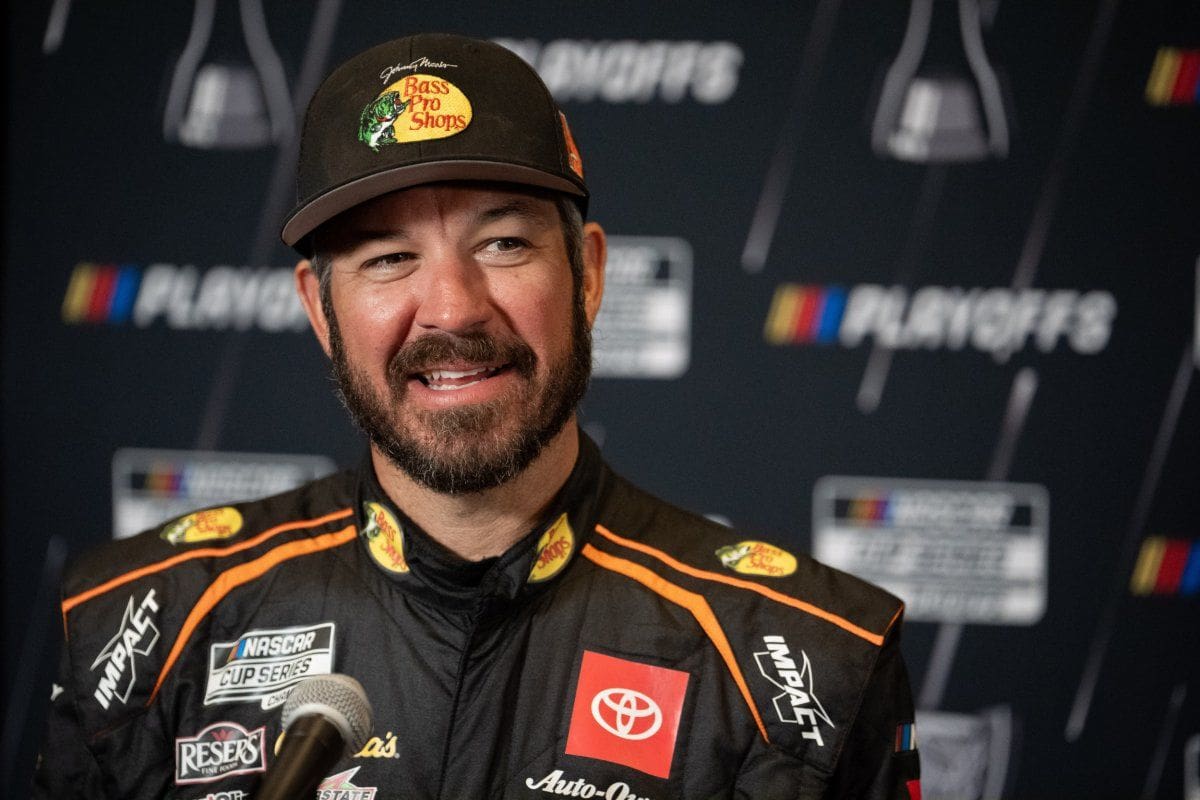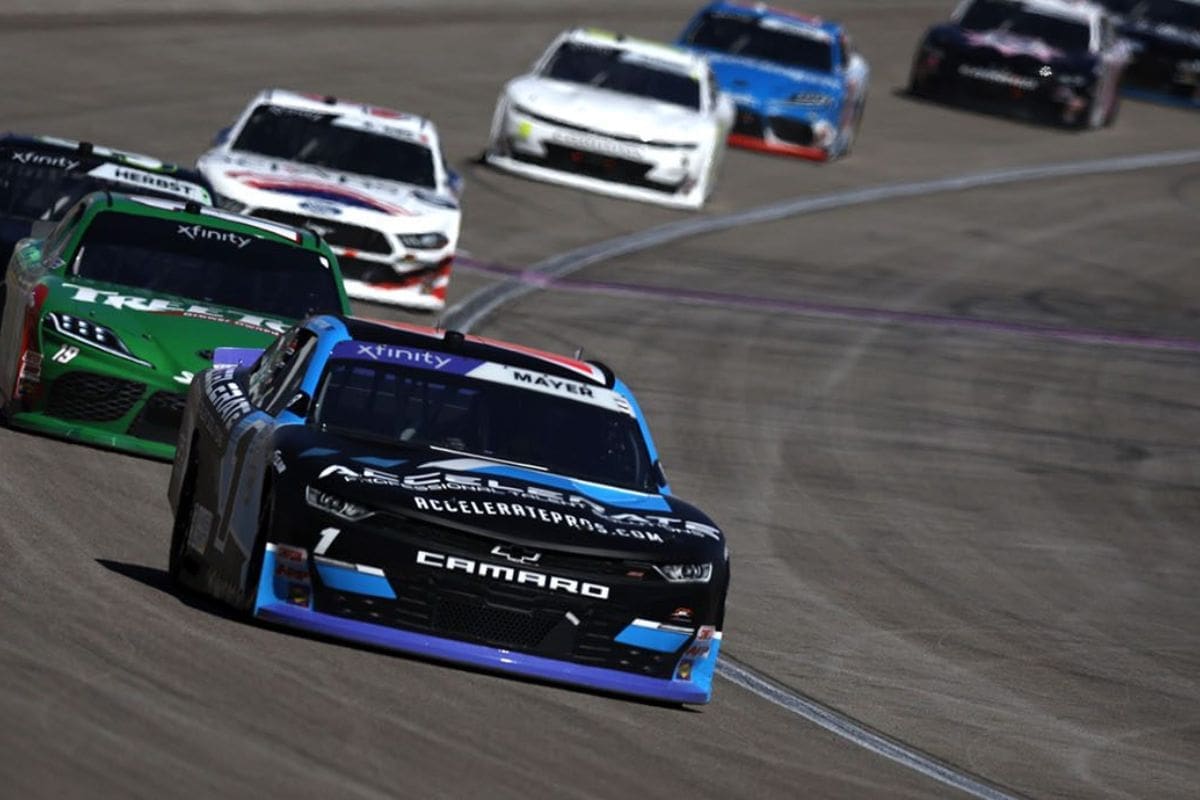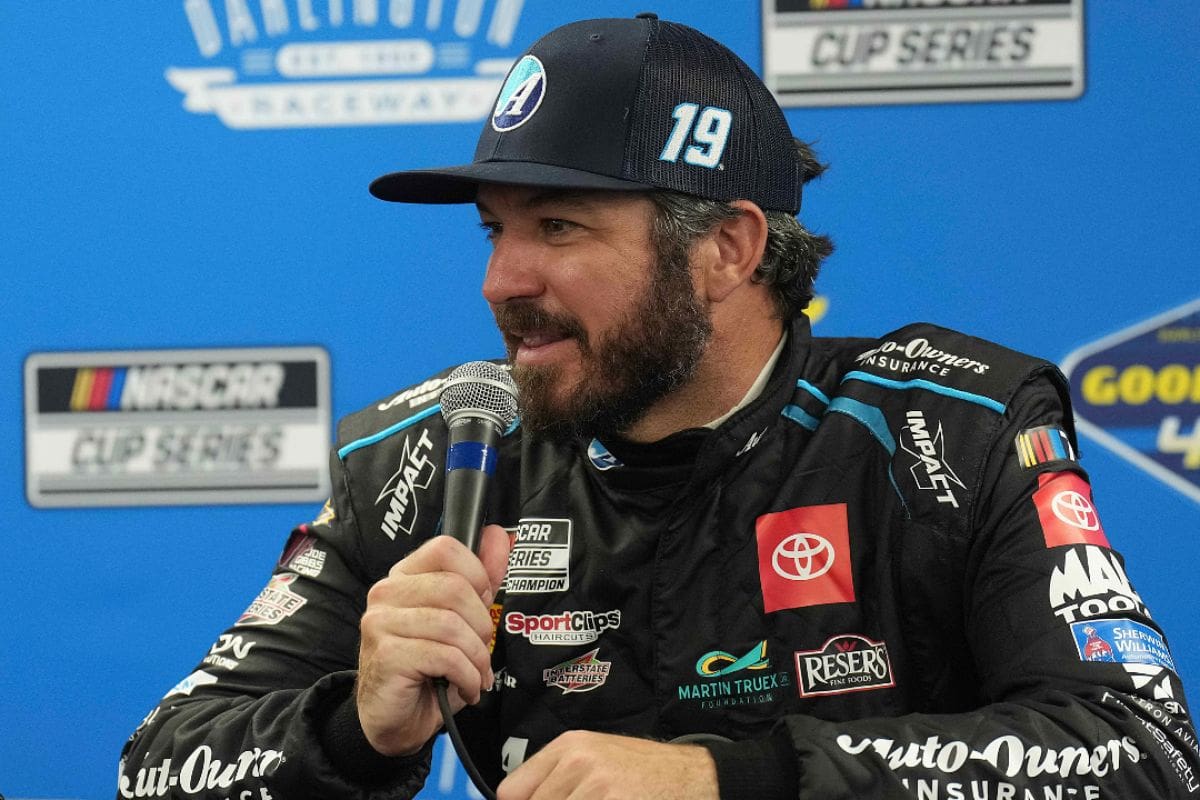NASCAR Short-Track Problems: Martin Truex Jr.‘s abrupt exit from the NASCAR playoffs serves as a sad case study in the world of motorsport, where even minor infractions can have monumental consequences. The pit road speed violation that cost him precious track position emphasizes the critical importance of precision in racing tactics. This incident not only curtailed Truex Jr.’s championship ambitions but also raises questions about the broader implications of regulatory adherence in competitive racing. As the season unfolds, the ramifications of this costly mistake warrant further examination, particularly in the context of team dynamics and tactical planning.
Key Highlights
- Martin Truex Jr. exited the NASCAR playoffs after a pit road penalty for exceeding the speed limit by 0.9 mph at Bristol.
- The penalty forced Truex Jr. from a top-five position to mid-pack, severely limiting his chances for recovery.
- The race’s long stretch without caution flags added to the difficulties, preventing opportunities for position gains.
- Truex Jr.’s experience underscores the critical importance of precision and accountability in high-stakes NASCAR scenarios.
- His playoff exit serves as a cautionary tale for other drivers about the significant impact of mistakes on championship aspirations.
Martin Truex Jr.’s Pit Road Penalty Ends Championship Hopes
Martin Truex Jr.’s championship aspirations unraveled dramatically due to an essential pit road penalty during a vital race at Bristol. This incident exemplifies the razor-thin margins that define success in NASCAR, particularly during playoff rivalry. Truex Jr., a seasoned driver with established skill, was poised to utilize his earlier performance, where he secured a commendable third place behind teammate Denny Hamlin. However, his enthusiasm to regain track position proved costly.
On lap 333 of the final stage, Truex Jr. exceeded the pit road speed limit by a mere 0.9 mph, incurring a pass-through penalty. This seemingly minor infraction had catastrophic implications, as it relegated him from a competitive position within the top five to the mid-pack, where the likelihood of recovery diminished considerably.
The race unfolded without caution for the subsequent 163 laps, further exacerbating his predicament. The absence of tire wear compounded the challenge, as Truex Jr. found himself entangled in battles with less competitive drivers, effectively sealing his fate in the championship chase.
This incident highlights the essential importance of precision and discipline in NASCAR, particularly during high-stakes scenarios. Truex Jr.’s experience and skill were rendered futile by a fleeting moment of impatience, illustrating how quickly fortunes can shift in the sport.
As the playoffs progress, this penalty serves as a sobering reminder of the relentless nature of competition and the ever-present need for meticulous execution on the track.
NASCAR’s Struggle with the Short-Track Package
Amid ongoing discussions about the future of NASCAR, the persistent challenges surrounding the short-track package have become increasingly evident. Despite considerable anticipation surrounding the introduction of the Next-Gen car, the execution has often fallen short of expectations, particularly on short tracks. This has raised concerns among fans, teams, and analysts similarly, who argue that the racing experience is not reflective of what NASCAR should embody.
The short-track package, traditionally known for its thrilling, close-quarters racing, has seen a marked decline in overtaking opportunities since the advent of the new car design. Prominent reporter Jeff Gluck has highlighted this issue, urging NASCAR to address these shortcomings before they become entrenched in the sport’s identity. The current configuration has left many drivers frustrated, as the anticipated increase in competition and excitement has not materialized.
“It’s an elimination race. There’s still things that can happen. And then you start to realize, Oh, they can’t really pass. Like Martin Truex Jr. was running what second. He could not pass Kaulig and Ricky Ware cars with his playoffs on the line to just even get around them. Ty Gibbs had a problem getting back through the field.”-(GLUCK)
View this post on Instagram
One of the most pressing demands from teams and drivers is for an increase in horsepower, which they believe could improve the competitive landscape and restore the thrill of racing on short tracks. However, NASCAR’s reluctance to implement such considerable changes has led to a stalemate, leaving stakeholders questioning the direction of the sport.
As the organization grapples with these challenges, it must find a solution that not only addresses the mechanical shortcomings of the short-track package but also reconnects with the core elements that have historically defined NASCAR racing. Without decisive action, the risk of stagnation looms large, threatening the very essence of the sport.
Failed Experiments and Jeff Gluck’s Reaction
How effectively can NASCAR adapt its plans to improve short-track racing? Recent experiments with tire compounds and track packages have yielded disappointing results, ultimately affecting the competitive landscape of the playoffs. The new tire options, particularly the red tire introduced during the All-Star race, were expected to improve performance but instead highlighted persistent issues inherent to short-track racing.
Key factors contributing to the lack of improvement include:
- Tire Wear: The spring event at Bristol indicated that while tire wear could create excitement, it did not translate into overtaking opportunities during the playoffs.
- Passing Difficulty: As noted by Jeff Gluck, prominent drivers like Martin Truex Jr. struggled to advance through the field despite being in critical playoff positions, illustrating the inadequacy of the current package.
- Unpredictable Race Dynamics: The inability of drivers to navigate through slower cars, such as those from Kaulig and Ricky Ware, demonstrates a failure to generate the competitive tension expected in elimination races.
Gluck’s observations on his show, The Teardown, reflect a broader concern about the state of NASCAR’s short-track racing. He remarked on the alarming realization that drivers, despite their capabilities, found themselves unable to pass effectively.
This situation raises questions about NASCAR’s directional approach and its ability to foster thrilling racing experiences, especially as fans and stakeholders seek to reclaim the excitement that short tracks once provided.
Xfinity Series Reflects the Same Issue
The Xfinity Series has reflected the challenges faced in the Cup Series, revealing a troubling trend in short-track racing that affects competitors at every level. The recent race highlighted the struggles of drivers such as Dale Earnhardt Jr. and Ryan Truex, pointing out the difficulties in gaining positions even amidst fierce competition.
While Layne Riggs achieved a remarkable back-to-back victory, the broader implications of the race signal systemic issues within the series that echo concerns raised in the Cup Series.
Critics, including noted analyst Jeff Gluck, have stressed the need for NASCAR to confront this crisis head-on. Gluck articulated a sentiment that resonates deeply within the racing community: the current state of short-track racing is unacceptable. His assertion that NASCAR cannot settle for subpar racing conditions reflects a growing frustration among fans and competitors similarly.
“You can say the solutions whatever, but ultimately, where I wanna see is NASCAR just cannot settle for this is as the short-track product. This cannot be what is acceptable in any way. This cannot be like, well, we’ve tried some things, and this is just how it’s going to be now. That just cannot happen.”-(GLUCK)
The issues faced in the Xfinity Series highlight a critical need for regulatory changes and tactical adjustments that improve the competitiveness and excitement of short-track events. As drivers grapple with these challenges, the urgency for NASCAR to implement effective solutions becomes increasingly apparent.
The parallels between the Cup Series and the Xfinity Series indicate that the problems are not isolated; rather, they are indicative of a broader trend that necessitates immediate attention to maintain the integrity and appeal of the sport as a whole.
Truex Jr. Owns Up to Costly Mistake
Martin Truex Jr.’s playoff exit serves as a poignant reminder of the intense challenges and demands inherent in NASCAR racing. As he reflected on his sudden departure from the championship rivalry, it became evident that the weight of responsibility rested squarely on his shoulders. His frank admission of error highlights the precarious nature of competitive motorsport.
Truex Jr.’s downfall can be attributed to several key factors:
- Strategic Pit Stop Error: A miscalculation during the final pit stop shifted the momentum dramatically, undermining his earlier successes.
- Performance Stress: Despite a strong car and accumulating vital stage points, the stress of needing a top finish proved overwhelming.
- Team Dynamics: The emotional toll on his team cannot be overlooked; their hard work and dedication were overshadowed by the costly mistake.
In his post-race comments, Truex Jr. expressed profound disappointment, stating, “It’s on me, obviously. My mistake… Just really sad for my guys.” This acknowledgment not only highlights his accountability but also reflects a deep respect for the collaborative effort that fuels NASCAR success.
“It’s on me, obviously. My mistake. They said that we were going to have to run second or third there to have a chance, and I don’t know if we could have done it, but it would have been nice to see. Just really sad for my guys. They work so hard. We had a really strong car tonight. We got a lot of stage points; we did what we needed to there. Just hate I screwed it up. I wish we could have at least seen if we could have done it. Would have been fun to have a fighting chance.”-(TRUEX JR.)
As he looks ahead, this experience will likely shape his approach, reinforcing the significance of precision and strategy in an unforgiving sport.
News in Brief: NASCAR Short-Track Problems
The exit of Martin Truex Jr. from the NASCAR playoffs highlights the profound impact of minor errors within competitive environments. The pit road speed violation, resulting in a critical pass-through penalty, exemplifies how precision is paramount in racing. Additionally, the absence of caution periods exacerbated the situation, leaving little opportunity for recovery. This incident not only affects individual aspirations but also reflects broader challenges within the sport, emphasizing the need for consistent performance under strain.
ALSO READ: Martin Truex Jr. Apologizes to Joe Gibbs After Heartbreaking Playoff Blunder



